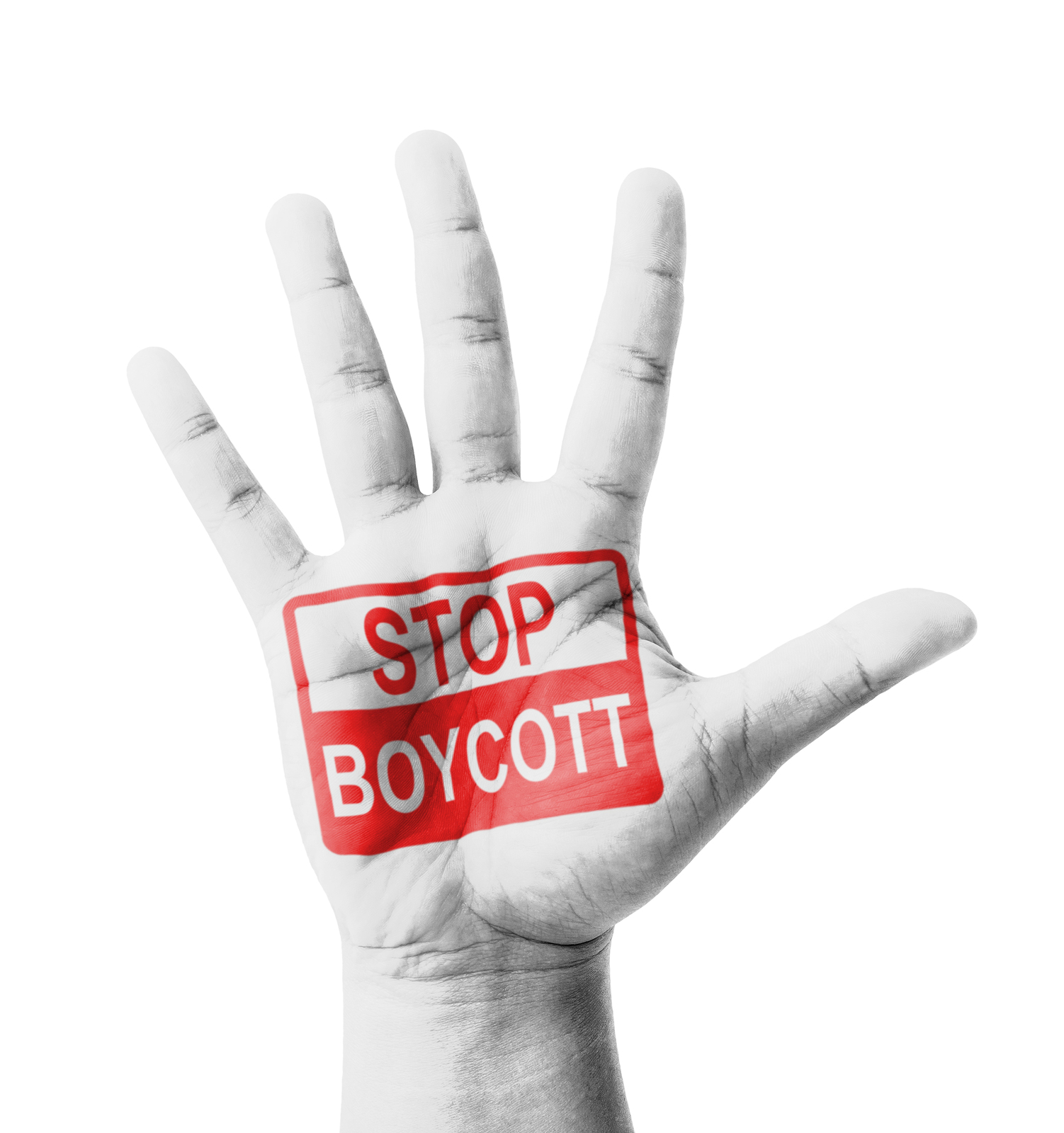Boycott (ˈbȯi-ˌkät) – Verb: “to refuse to buy, use, or participate in (something) as a way of protesting: to stop using the goods or services of (a company, country, etc.) until changes are made.”
Boycotts are all the talk of late. We have progressives promising not to travel to entire states because they disagree with policies enacted by the state legislature. We have an aging rock star cancelling a concert in a state with which he disagrees.
Recently, another business, this time the retail giant Target, became the target of an orchestrated boycott. Since it is fellow Christians taking up this boycott, let me examine this as a test case for a moment.
The American Family Association has circulated a pledge at which people can publicly say they will not shop at Target, because of the company’s recent policy of “inclusion” and of open bathrooms and fitting rooms, regardless of sex.
I know more than one family who has joined the boycott and will not give the retailer their business, as long as the company will not keep men’s rooms for males and women’s rooms for women. At the same time, I know more than one person who disagrees with what Target did, but is against the boycott, even is annoyed at the notion.
Russell Moore, one of the people I respect most in Christian thought today, has a must-read article about whether Christians should boycott Starbucks, from 2012, when the same-sex marriage debate was reaching new heights.
Dr. Moore says, “It’s not that I’m saying a boycott in and of itself is always evil or wrong. It’s just that, in this case (and in many like it) a boycott exposes us to all of our worst tendencies. Christians are tempted, again and again, to fight like the devil to please the Lord. A boycott is a display of power, particularly of economic power. The boycott shows a corporation (or government or service provider) that the aggrieved party can hurt the company, by depriving it of revenue. The boycott, if it’s successful, eventually causes the powers-that-be to yield, conceding that they need the money of the boycotting participants more than they need whatever cause they were supporting. It is a contest of who has more buying power, and thus is of more value to the company. We lose that argument.”
I agree with every word Dr. Moore wrote, and I did not personally join the Starbucks boycott (though I second guessed my motives, because I like their coffee and did not want to give it up). Regarding Target, I have not yet joined the boycott (though again, I second guess my motives, because I prefer shopping there over Wal-Mart).
At the same time, I am increasingly concerned about those who would have us think boycotts are never appropriate or effective. I can point out three times in recent history that boycotts worked to some effect, each in cases that popular society today would applaud the eventual outcome.
/// Abolitionists boycott sugar to fight slavery
While British abolitionist and Christian leader William Wilberforce was not a driving force in the boycott, many in Britain refused to buy sugar cane manufactured by slave plantations. This weakened Britain’s wealth from slave labor. While it took a man like Wilberforce to make abolition happen, the boycott played a role.
/// Gandhi boycotts British clothes to fight for India’s independence
For a recent non-Christian and controversial example, look at Mohandas Gandhi and others who joined him in the fight for India’s independence. They boycotted Western clothes, specifically those made by the British Empire. Ultimately, out of a variety of factors, India won its independence and the boycott played a significant role.
/// King boycotts buses to end segregation
Martin Luther King, Jr. and his followers, for more than a year, boycotted city buses in Montgomery, Alabama, in protest of segregated seating. This boycott was key in Dr. King’s rise to prominence, and it was a key chapter in the fight toward desegregation in America, without which it may not have happened as it did.
Each of these examples is a rare exception. Most boycotts do not have the full impact as these, for reasons Dr. Moore illustrates in his column. Lastly, I agree with Dr. Moore that prayer and positive cultural engagement are better tools than mere boycott.
The Target boycott will almost assuredly come and go, as have others. But I would venture to say that the very notion of boycotting boycotts altogether will come and go, as well.
